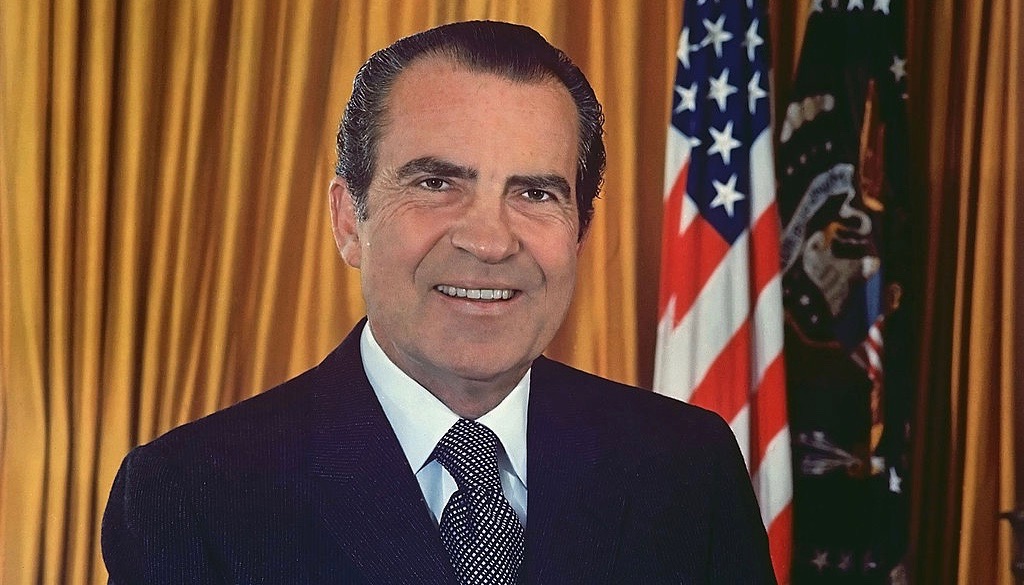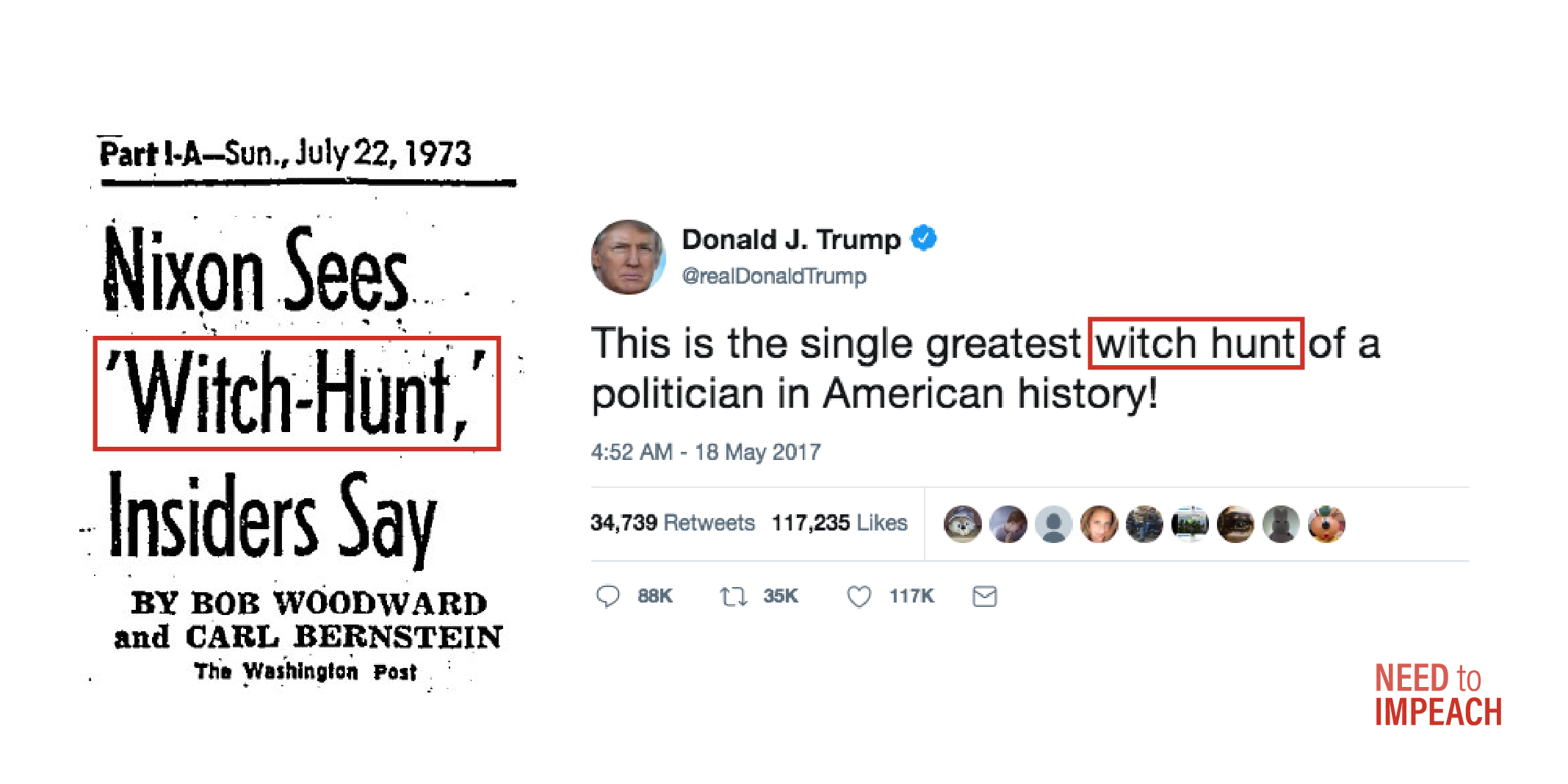Watch: Trump is a crook, just like Nixon
“A powerful and determined president is squaring off against an independent investigator operating inside the Justice Department,” wrote Bob Woodward and Carl Bernstein.
Are we talking about 1973 or 2018?
How about this phrase? The Justice Department launched an investigation into the finances and workings of the President.
The answer: 1973. President Richard Nixon was embroiled in an investigation into his dealings with Watergate.
Read more: Watergate parallels to Trump
You know the story. In June 1972, five men break into the Democratic National Committee (DNC) headquarters at the Watergate office complex with large amounts of cash and connections to President Nixon’s re-election campaign. Reporters Woodward and Bernstein publish an article about it. Nixon is re-elected.
By April 1973, the Watergate incident had become a scandal; by May, the Justice Department appointed a special prosecutor, Archibald Cox, to directly investigate the President.
In all of my years of public life, I have never obstructed justice … I am not a crook. — Richard Nixon, 1973
Worried, Nixon made multiple attempts to “turn off” the investigation. On Oct. 20, 1973, after months of anguish, Nixon demanded that special prosecutor Cox be fired. But he couldn’t fire the special prosecutor directly; he needed the attorney general to do so. The Attorney General and Deputy Attorney General both refused, so Nixon went to another Justice official, Robert Bork, to fire Cox. The Attorney General and Deputy Attorney General resigned from their posts in protest. Their departures have gone down in history as the “Saturday night massacre.”
The investigation ensued with a new prosecutor; the White House was forced to release recorded conversations in the Oval Office. In August 1974, a White House conversation surfaced between Nixon and his chief of staff, H. R. Haldeman, in which they plot to thwart the FBI investigation. The recorded conversation, widely known as the “Smoking Gun,” was the turning point in his tenure as president and marked the final breakdown of Nixon’s cover-up and obstruction of justice.
Well, when the president does it, that means it is not illegal. — Richard Nixon, 1977
Faced with no other choice, Nixon resigned, bowing to pressures from his party and the American public.
Read more: The first president to break ethics norms since Watergate
Forty five years later, Trump’s Justice Department appointed another special counsel, Robert Mueller, to investigate the potential involvement of the Russian government in the 2016 elections. With Attorney General Jeff Sessions recused, Deputy Attorney General Rod Rosenstein oversees the investigation.
In June 2017, just six months into his presidency, Trump ordered White House Counsel Don McGahn to fire Mueller. He held off only when McGahn threatened to resign, echoing the 1973 Saturday Night Massacre, when Nixon’s top Justice officials resigned rather than fire Archibald Cox.
Trump has repeatedly called Mueller’s investigation a “witch hunt” of his family’s finances and an unfair examination of his personal life.
The Mueller probe should never have been started in that there was no collusion and there was no crime. — Donald Trump, 2018
This is the Saturday Night Massacre in slow motion. Trump continues to attempt to obstruct justice and Special Counsel Mueller and Deputy Attorney General Rosenstein remain in peril. Trump has already attempted to fire Mueller on at least two occasions: June 2017 and December 2017.
Nixon’s Saturday Night Massacre led to his fateful decision between “all-but-certain impeachment” and resignation. When will Trump finally face that ultimatum?
Investigations
Special Counsel Robert Mueller is moving forward with the investigation into possible coordination between Donald Trump’s campaign and the Russian government during the 2016 election, while Congress’ investigations vary in their direction and effectiveness.

